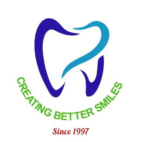Vitamins, dietary supplements, or medications may be prescribed to improve your overall health. Take any prescribed medication according to directions.
Dental laser procedures result in little or no discomfort following surgery. Take prescribed pain medications according to instructions if needed.
For the first 24 hour period immediately following surgery, stay on a liquid diet only. For the following 3-7 days after surgery, a soft diet is recommended. Try to eat soft but nutritious foods such as eggs, yogurt, cottage cheese, smoothies, etc. Stay away from spicy and “chippy” foods and always maintain good fluid intake during this period.
Carefully avoid chewing food in the areas of the mouth where the laser has been used. One of the most important results of laser surgery is the healing that occurs following the initial procedure. It is extremely important not to dislodge the tiny clots (scabs) that form in the gums. Do not apply excessive tongue or cheek pressure to the surgical area.
Daily Care:
Brush the teeth by placing the bristles of the brush on the gums below the tooth and carefully rolling the bristles toward the tooth surface. Do not stick the bristles into the gums.
Brush the chewing surfaces of the teeth.
Try to keep your mouth as clean as possible in order to help the healing process. Brush and follow other home care instructions in all areas of the mouth except for the surgical area.
Do not be alarmed with any color changes or appearance of tissues following laser therapy. Tissues can be gray, yellow, red, purple, “stringy” and reflect normal response to laser treatment.
Reduce activity for several hours following surgery.
It is OK to spit, rinse, and wash your mouth today. Rinse as directed with Peridex morning and night. It is OK to gently rinse with warm salt water every three (3) hours.
Do not eat spicy or very hot (temperature) foods.
Do not be alarmed if one of the following occurs: light bleeding or swelling, some soreness, tenderness or tooth sensitivity and a medicinal taste from the Peridex.
If your doctor determines you need it, a surgical pack will be placed on the area to prevent food, trauma, and/or smoke from irritating the tissues. If a piece of the pack falls out, or the entire pack loosens, do not be alarmed.
Swelling may possibly occur. To keep this at a minimum, gently place an ice pack outside the face for 20 minutes each hour until you retire for sleep at night. Do not continue using the ice pack beyond the day of the surgery.
Some oozing of blood may occur and will appear to be greatly exaggerated when it dissolves in saliva. If excessive bleeding occurs, call the office.
Please call the clinic if any of the following occurs:
Prolonged or severe pain
Prolonged or excessive bleeding
Considerably elevated or persistent temperature
Do not be alarmed that beginning with just 2 weeks after surgery and extending for as long as 1 year or more, the teeth may become sore, tender, or sensitive as the bones and ligaments around the teeth regenerate and become more firm. This is a sign of healing, but also may indicate that presence of a bite imbalance which will need to be adjusted.
